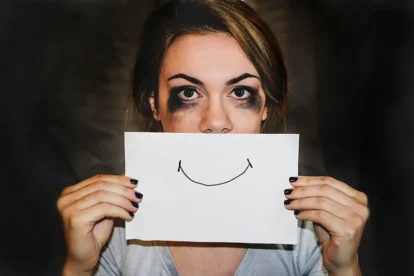Mixing Valium and Alcohol: Seeking Addiction Recovery in Residential Treatment

According to the Centers for Disease Control and Prevention, alcohol is involved in about 27 percent of emergency room visits for abuse of benzodiazepine drugs, like Valium. Alcohol is involved in more than 20 percent of benzodiazepine-related deaths. The combination of these two substances is very dangerous. Not only can it quickly lead to addiction, but the additive effects of alcohol and Valium can trigger a fatal overdose. It is important to get treatment as soon as possible to stop this harmful behavior and for recovery from substance use disorders.
Mixing alcohol and Valium is extremely risky. Both cause relaxation and reduce stress, and this is why many people may combine a drink with a Valium or two. The dangers are serious, though, and include overdose. If you or someone you care about has been mixing these two mind-altering substances, it’s time to get help. An overdose is a real possibility and could be fatal. Residential treatment is available and effective for treating this dangerous habit and double addiction.
Valium is the brand name for the prescription drug diazepam. It belongs to a class of drugs known as benzodiazepines. These are central nervous depressants, medications that act by slowing down activity in the brain. Diazepam is prescribed to treat muscle spasms and seizures. It can be used to manage anxiety, but is only intended for this purpose for short-term use. Valium is also prescribed for people going through withdrawal from alcohol who may be experiencing anxiety and agitation.
The Drug Enforcement Administration classifies benzodiazepines, including Valium, as schedule IV controlled substances. They are considered to have a lower risk for abuse and dependence than other scheduled drugs. However, these drugs are often abused, and dependence is always a risk.
Another risk of misusing Valium, which includes using it in any way other than prescribed, includes experiencing more side effects. Valium can cause drowsiness, muscle weakness, dry mouth, headaches, confusion, nausea, constipation, slurred speech, and tremors.
It is also possible to overdose on Valium, and the risk of a fatal overdose is higher when misused. As a central nervous system depressant, this drug can slow down brain activity to the point that you stop breathing. It isn’t possible to know how much will cause an overdose. Signs that someone is overdosing on a benzodiazepine include extreme drowsiness, confusion, slowed breathing, slowed heartbeat, and loss of consciousness.
What Happens When Valium Is Mixed With Alcohol
Valium is actually prescribed for people struggling with alcohol use disorder, but it is only used when a person has detoxed and is going through withdrawal. Actually taking this drug at the same time as drinking alcohol is extremely dangerous. The warning label for Valium includes a special statement about the risks of mixing it with alcohol:
- Life-threatening breathing difficulties
- Sedation
- Dizziness
- Lightheadedness
- Unresponsiveness
- Coma
- Death
Alcohol causes many of the same depressant effects as Valium. So if you mix the two the negative, harmful effects are multiplied. You are at a much greater risk of dying from an overdose in this situation. Even if you combine these two substances and don’t overdose, you still put yourself at risk of having an accident and being injured because of the added impairment.
Treating All Substance Use Disorders
Mixing alcohol with benzodiazepines is a very risky behavior, and it likely indicates that you have a substance use disorder. You may be diagnosed with alcohol and drug use disorders, but even if you only meet the criteria for one or the other, you can benefit from treatment. The best treatment will address all of your issues, including the use of multiple substances. To be most effective, treatment must focus on both benzodiazepine misuse and alcohol abuse.
The reason this is so important is that the two issues are closely related and impact each other. If you ignore your issues with alcohol and achieve recovery from Valium, you may still continue to abuse alcohol. Using alcohol after treatment for Valium addiction could easily lead to a relapse in using the drug. Relapses are particularly dangerous because they may cause an overdose.
We're Here to Help. Call Today!
866-922-1350Residential Treatment for Alcohol and Valium Abuse
If you have been struggling with using these two substances; if you have tried to stop on your own but can’t; and if you’re worried about the risk of overdose, a good solution is to seek residential treatment. A residential facility can provide more options for care and a more individualized approach to treatment than an outpatient program.
Residential care also allows you more time to focus on your wellness and recovery with fewer distractions. This is particularly important for a complex diagnosis like alcohol use disorder with Valium abuse. A comprehensive program will get you through detox in a supervised and safe way, also important as benzodiazepine withdrawal can actually be dangerous and should never be attempted alone.
How Alcohol and Valium Addiction Are Treated
This is a tricky diagnosis and can be difficult to treat, because you have two substances to overcome. You will likely not be able to receive benzodiazepines as part of withdrawal treatment for alcohol dependence because of your history of abuse. But there are many other ways to treat these addictions effectively, and you can expect to benefit from all of them in residential care:
- General medical care, including good nutrition, alternative medicine, and holistic care
- Behavioral therapies to learn healthier ways to cope with negative emotions and how to make better choices
- Group therapy and support from fellow patients in a community treatment setting
- Family and relational therapy to help improve relationships with loved ones and to teach them how to best help you going forward
- Relapse prevention programming that teaches you to recognize and avoid or manage triggers for substance abuse
- Recreation and alternative therapies, such as therapy with music, art, movement, or animals
- Aftercare programs to help you transition more smoothly back into your life in recovery while avoiding relapse.
You can get effective treatment in an outpatient program, but what inpatient care provides is all this diversity of treatment as well as a safe and supportive environment.
The combination of Valium with alcohol is extremely dangerous. This behavior should be taken very seriously. Even if you don’t think you have developed a substance use disorder yet, getting help now is essential for preventing the worst possible outcome: an overdose. Early residential treatment can set you on the path to wellness and long-term recovery.
Alta Mira offers comprehensive treatment for people struggling with drug and alcohol addiction as well as co-occurring mental health disorders and process addictions. Contact us to learn more about our renowned Bay Area programs and how we can help you or your loved one start the journey toward lasting recovery.






